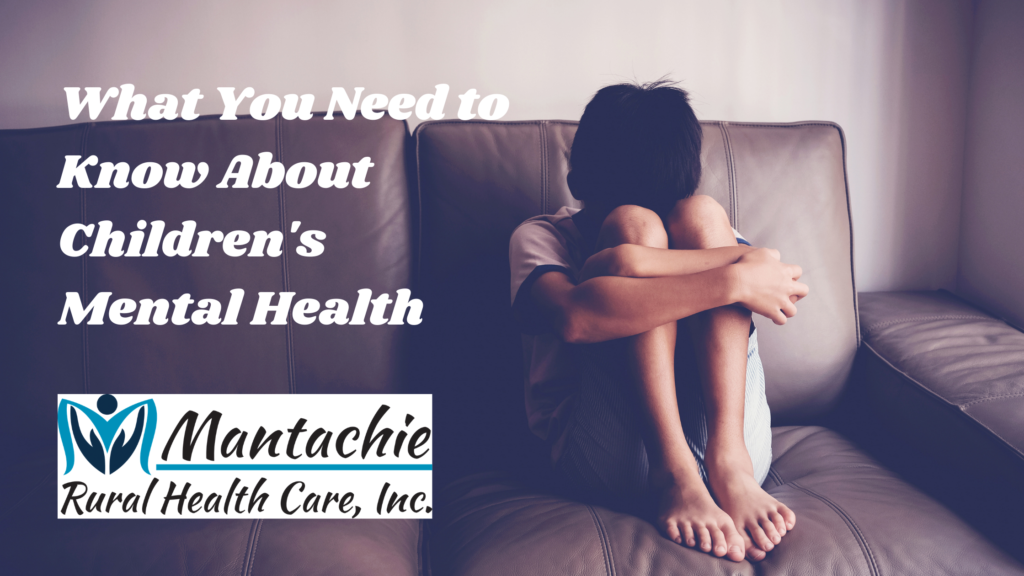
Children’s mental health affects all aspects of their lives including their physical health, school success, and success at work and in society. However, out of the estimated 15 million children who could be diagnosed with a mental disorder, only 7 percent will receive the professional services they need. One way to increase this number and get more children the appropriate care is through education about children’s mental health disorders.
Factors Affecting Children’s Mental Health
Several risk factors can affect a child’s mental health. Some children are born with genetic and biological factors which increase their risks for mental health disorders. Environmental factors like a child’s home life and where they live can also put them at a greater risk. Relationships with family members, teachers, fellow classmates, and other important people in a child’s life affects their mental health as well.
Most Common Types of Children’s Mental Health Disorders
Understanding the signs and symptoms of mental health disorders affecting children helps parents to get their child the help they need. The following conditions are the most common children’s mental health disorders diagnosed today.
- Anxiety
- Signs of anxiety include being afraid when away from parents and extreme fear of specific situations.
- Social anxiety in school and fear of the future or of bad things happening are also common symptoms.
- Children with anxiety may suffer from repeated panic disorder episodes with symptoms including but not limited to sudden, unexpected, extreme fear, trouble breathing, pounding heart, and/or dizziness, shakiness, or sweating.
- Depression
- Symptoms include feeling sad, hopeless, or irritable. Other signs are:
- Changes in sleeping or eating habits.
- Changes in energy, from being tired or sluggish to tense or restless.
- Inability to focus or concentrate.
- Feeling worthless, useless, or guilty.
- Infliction of self-injury or self-destruction.
- ADHD
- Signs of ADHD (Attention Deficit Hyperactivity Disorder) such as a lack of focus and forgetting things easily are also accompanied by other symptoms such as:
- Being prone to daydreaming often.
- Impulsiveness
- Fidgeting and/or talking too much
- Trouble getting along with others
- Making careless mistakes
- Obsessive-Compulsive Disorder
- OCD consists of having unwanted thoughts, images, or impulses that occur over and over again causing stress or anxiety.
- Other obvious signs include having to think or do something over and over again or perform a ritual following certain rules to stop obsessive thoughts.
- Oppositional Defiant Disorder
- Children who act out so seriously that their behavior causes problems at home, school, or with peers may be diagnosed with ODD.
- Behaviors of ODD include often being angry or easily losing one’s temper, arguing with adults or refusing to comply with rules set by authority figures, and being resentful or spiteful.
- Children with ODD may also be easily annoyed by others or attempt to annoy others themselves, and they may also blame others for their mistakes or misbehaviors.
- Conduct Disorder
- Conduct disorder occurs when a child persistently shows a pattern of aggression towards others and violates rules and social norms at home, school, and among peers.
- Children with conduct disorder may display behaviors such as running away from home, staying out past curfew, skipping school, lying, causing damage to other people’s property, and being aggressive toward others.
- Post-Traumatic Stress Disorder
- Some children recover quickly from trauma while others suffer long-term effects with a condition known as PTSD, or post-traumatic stress disorder.
- Signs of PTSD include reliving the traumatic event over and over again, having nightmares or difficulty sleeping, and becoming upset over memories of the event.
- Other symptoms may also occur such as intense, ongoing sadness, irritability, angry outbursts, and being easily startled.
- Children with PTSD may also become withdrawn or lack positive emotions.
If you believe your child is suffering from a mental health disorder Mantachie Rural Healthcare can help. Dial 662-282-4226 to request an appointment with our behavior health specialist.


Speak Your Mind